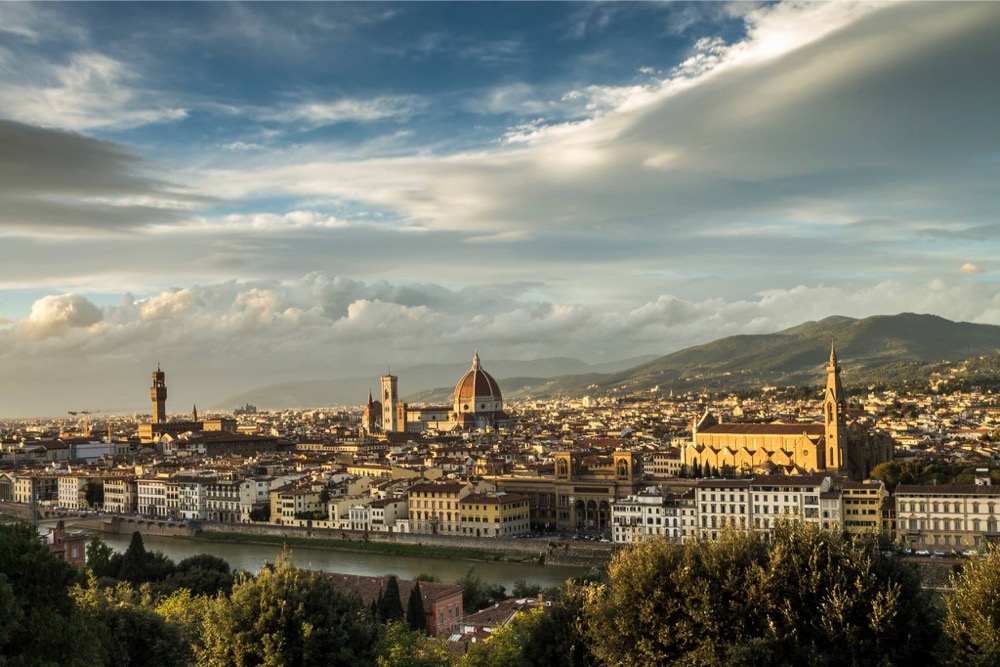
AtlaS-WH – Heritage in the Atlantic Area: Sustainability of the Urban World Heritage
With the goal to address common challenges related to the protection of their World Heritage sites (WHS), the cities of Porto, Bordeaux, Santiago de Compostela, Florence, and Edinburgh partake in AtlaS-WH, a transnational project funded by INTERREG Atlantic Area. The Eu-funded project, led by the city of Porto, is an essential step for the preservation, enhancement and sustainability of the WHS. Each city will share their expertise and experience in sustainable management of historic sites. Through this shared learning, a common methodology will be created for planning, monitoring, and governance in the five urban heritage sites. Continuous benchmarking of the set methodology will allow a dynamic follow-up on the evolution of each WHS, enabling future conjoint answers to common challenges.
The primary outcome of AtlaS-WH programme will be the Sustainability Plans for each WHS, by implementing an integrated and participative management and monitoring model. The result will be achieved through the common construction of a methodology and the exchange of know-how and best practices. The transnational partnership will disseminate the results to the cities in the Atlantic Area and beyond, which may be replicated and adapted, in order to stimulate heritage-led economic development.
The AtlaS.WH project is divided into seven Work Packages. During the Work Packages studies and researches were developed:
1.Diagnosis (developed by Santiago de Compostela in 2018)
The Diagnosis Study, which is under the responsibility of Santiago de Compostela, aims to characterize each WHS and identify the main common challenges faced by each partner in the management of their WHS. The study identified a group of common challenges among the network of
World Heritage sites:
GOVERNANCE
- The Metropolisation of the World Heritage site, and reciprocal influences; the need for collaboration between the centre and the periphery, beyond the limits of a buffer zone; the updating of management tools based on their own performance.
- Poor coordination between stakeholders; lack of information exchange systems among stakeholders;
- Poor citizen participation. There are no platforms for participation in the management of the city.
- A notable disproportion between the expectations generated by the city and its actual resources and capacity.
- Lack of regulatory framework on rehabilitation of and intervention in buildings.
POPULATION
- Decrease in the number of residents, especially in certain areas of the city; floating population;
housing problems; reduction in the number of inhabitants, partly due to the condition of the
buildings.
TOURISM
- The growing pressure of tourism (tourism management, raising of prices; concentration in
certain areas and in a specific period of the year, occupation of public space….). - Impact.
2. Thamatic Study on Common Challenges (developed by Florence in 2019)
Florence dealt with the development of the WP5 “Thamatic Study on Common Challenges”, that is the collection and analysis of good practices concerning the critical issues identified by Santiago de Compostela in the previous analysis phase (WP4: Diagnosis).
WP5, entrusted to the city of Florence, was developed by a interdisciplinary group of researchers from the University of Florence and the UNESCO Office of the Municipality of Florence (HeRe Lab – Heritage Research Lab) composed of: Chiara Bocchio, Elena Ghibaudo , Patricia Guerriero, Lorenzo Santetti.
The “Thamatic Study on Common Challenges” research analyzes and collects good European and non-European practices for the reduction of critical issues common to the World Heritage sites of the ATLASWH network: issues related to Governance (poor coordination among stakeholders; need for communication and collaboration between the centre and periphery; lack of a regulatory framework for the redevelopment of buildings and insufficient participation of citizens), Tourism (overtourism) and Population (decrease in the number of residents; inconvenience between the coexistence of citizens and visitors, and housing problems).
Among the 24 selected good practices we find regulations to manage urban heritage and dynamics; models to actively involve stakeholders and local community; tourism management policies and practices; projects aimed at environmental sustainability; government funding and tools to promote private investment in heritage.
The collection of good practices led to the development of a checklist of 45 suggestions addressed to World Heritage site managers and which can be the basis for the development of Management Plans and policies based on sustainability.
3. Methodology (developed by Porto in 2019)
The Methodology for the development of Management Plans for Urban World Heritage Sites, which is under Porto’s responsibility, aims to create a framework that allows all partners to address their common challenges in a uniform way, both at a strategic and operational levels.
At the following link, find all the information on the project: http://www.atlaswh.eu/

DOWNLOAD
Diagnosis (study developed by Santiago de Compostela)
Thematic Study on Common Challenges (study developed by Florence)
Esperienze di siti Patrimonio Mondiale nella gestione delle criticità legate alla Governance, Popolazione e Turismo
World Heritage Site experiences in managing Governance, Population and Tourism issues
Methodology
(Italiano) Preliminary document for the Management and Sustainability Plan_ENG
(Italiano) Documento preparatorio al Piano di Gestione e Sostenibilità_ITA
(Italiano) Inception Report on Heritage Related Projects
(Italiano) Wish you were here! Is a publication developed within the scope of the action “Local awareness-raising in schools
(Italiano) Experiences of capitalization activities


